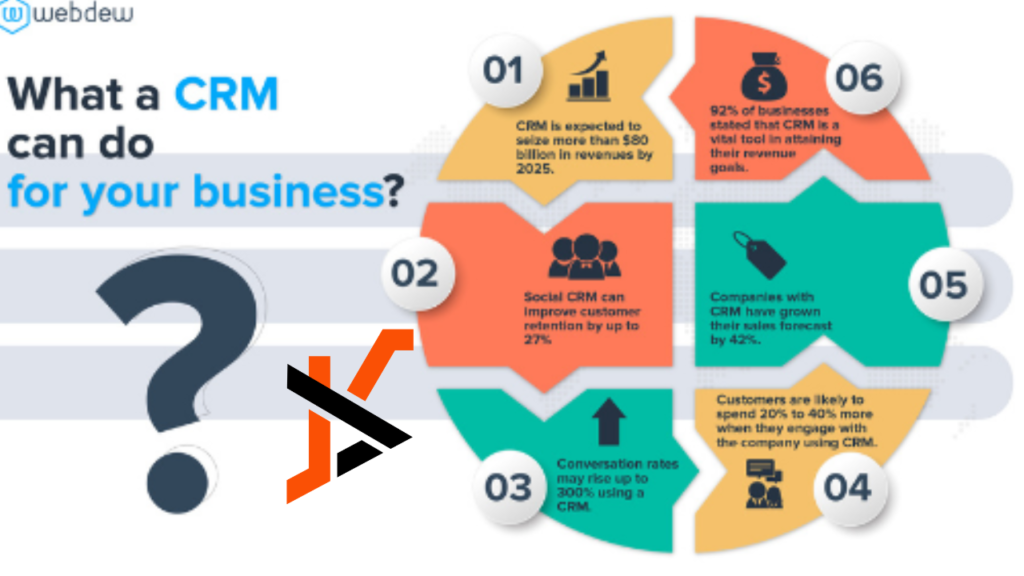The real estate sector is one of the most impactful commercial sectors worldwide. The global real estate market is projected to reach a value of $7806 billion by the year 2027. Broking is a parallel commercial sector closely linked with real estate. The market for broking too has scaled along with the growth witnessed in real estate, and it is expected to attain a value of $1698.73 billion by 2026.
With the industry’s operations scaling so rapidly, how will can it keep up and maintain these levels of success? The answer is through CRM technology
THE ROLE OF CRM IN BROKING BUSINESSES: $
Brokers, or Channel Partners, are the link between real estate developers and homebuyers. Since they have assumed such an important role, their tasks spread widely. From keeping track of inventory to facilitating transactions, broking businesses undertake it all. Managing many diverse functions on a large scale is impossible without technological intervention. The traditional broking methods will not be able to match the demands placed on the sector.
CRM, which stands for Customer Relationship Management, is a tool that can streamline the end-to-end operations of any business. A field like real estate generates a lot of data about inventory, leads, transactions, etc., and the actions required to be taken are dependent upon this data. A CRM system will efficiently store and segregate all this data and create usable insights. It helps make informed decisions, ultimately contributing to the holistic growth of your broking business. This is backed by statistics showing that 26% of real estate professionals felt their productivity increase due to CRM.
Let us now explore the various aspects of broking businesses that can be made efficient with the help of CRM.
Inventory Management:
Having a robust system of inventory management is crucial for the success of any business. If the products to be sold are not well managed, a business will find it difficult to scale its sales.
For real estate broking businesses, inventory means the numerous projects/plots that brokers sell to their clients. Having complete knowledge about this inventory is essential for brokers. Imagine a broker who has not managed his inventory well. He may pitch the wrong kind of property to the wrong client and end up losing the sale.
CRM helps to make inventory management a highly efficient process, in the following ways:
- Instead of having inventory records manually stored in scattered books and papers, CRM acts as a centralized platform
- It provides real-time inventory tracking. Brokers can hence have complete clarity, at any given time, regarding all aspects (such as configuration, stage of completion, locality, etc.) of the available projects.
- Data analytics features of CRMs can also provide brokers with suggestions regarding the most suitable inventory depending on the lead’s preferences.
2, Lead Management and ensuring timely interactions with Leads:
Leads are valuable resources for a business because they are the potential consumers who may eventually be nurtured into sales. Managing them efficiently and keeping them engaged through the longer buying cycle of real estate properties is vital.
CRM helps businesses capture leads generated from different platforms and sources, creating an error-free, hassle-free lead database. The numerous incoming leads can be prioritized based on data analytics, and their interactions with your brand can be visually tracked.
It also helps you maintain timely communications with leads through automation. The features of CRM also help in:
- Maintaining an omnichannel communication approach
- Having personalized communications that target the pain points of customers
- Enhancing customer retention by engaging them post-sales too
3. Optimizing Operations:
CRM optimizes and manages broking operations like sales pipelines, arrangement of site visits, etc.
Efficient management of the sales pipeline can reveal strengths and weaknesses of the sales cycle, and it helps to identify loopholes in the process through which sales are lost. Since broking businesses are centred around assisting consumers to find the ideal properties, site visits are essential to closing sales. These can be planned, managed and executed through CRM systems to produce the best possible results.
4. Tracking the work of sales teams:
Brokers need to stay apprised regarding all aspects of their teams’ work. Through tracking and monitoring, the sales process can be broken down, analyzed, and optimized to enhance the functionality of teams.
CRM tools have specific features for performance tracking, such as dashboards and reports. Due to most CRM systems’ remote access, your field sales teams can access it on the go, through which you can monitor their work, too.
The above points are just some of how CRM can benefit your broking business. Its benefits are limitless, so CRM is necessary for your broking business. A robust sales CRM like Kylas can transform your operations and help your broking business scale. It has various features directed towards lead management, pipeline management, workflow automation, etc., which can streamline and optimize your operations.

